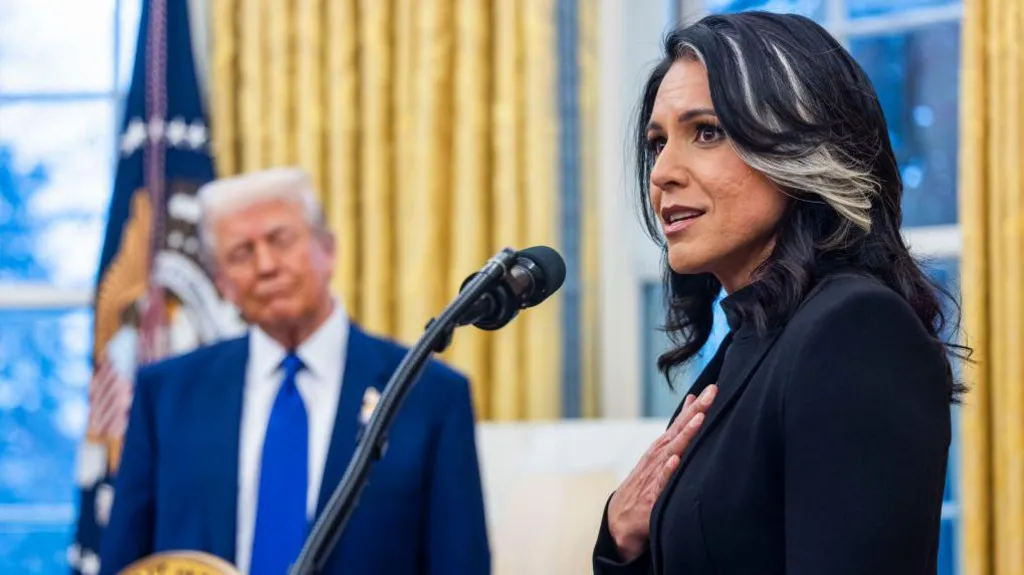Tulsi Gabbard has said that Iran could now produce a nuclear weapon “within weeks,” marking a sharp shift from her earlier congressional testimony in March where she stated that Iran was not actively building nuclear arms. The change in position comes as tensions continue to rise in the Middle East, with former President Donald Trump publicly disputing her earlier stance and calling for immediate action.
Gabbard, a former U.S. Congresswoman and a prominent voice in Trump’s “America First” movement, stated in a new social media post that “U.S. intelligence shows Iran is at the point that it can produce a nuclear weapon within weeks to months.” She added, “President Trump has been clear that can’t happen, and I agree.”
The comment follows criticism from Trump, who recently said Gabbard was “wrong” and claimed that intelligence reports indicated Iran possessed “a tremendous amount of material” and could develop a nuclear bomb soon. He has given Iran a two-week deadline to reach a deal with Washington, warning that the U.S. may join Israel’s ongoing military strikes against Iran if diplomacy fails.
In her March testimony before Congress, Gabbard cited U.S. intelligence findings that Iran, despite a growing stockpile of enriched uranium, had not resumed its suspended nuclear weapons program from 2003. She had emphasized that the stockpile was “unprecedented for a state without nuclear weapons” but did not constitute evidence of active weaponization.
The International Atomic Energy Agency (IAEA) has also raised concerns this month over Iran’s enriched uranium reserves, noting that while such material can be used for civilian purposes like reactor fuel, it can also be diverted for nuclear weapons if processed further.
Iran maintains that its nuclear program is for peaceful purposes only. On Saturday, Iranian Foreign Minister Abbas Araghchi reiterated that Iran was “absolutely ready for a negotiated solution,” but stressed that talks with the U.S. cannot proceed “when our people are under bombardment.”
The diplomatic crisis has intensified since June 13, when Israel launched “Operation Rising Lion,” targeting key Iranian military and nuclear facilities. The strikes, described by Prime Minister Benjamin Netanyahu as hitting “the heart” of Iran’s nuclear infrastructure, killed several top commanders and scientists. Iran’s retaliatory drone and missile attacks have killed 25 people in Israel, while Iranian casualties have risen to over 430 according to government figures, with independent sources citing even higher numbers.
The disagreement within the American conservative bloc over military involvement continues, with some urging restraint and others advocating support for Israel’s operations. As international pressure builds, Gabbard’s revised assessment could influence the direction of U.S. policy in the days ahead.













